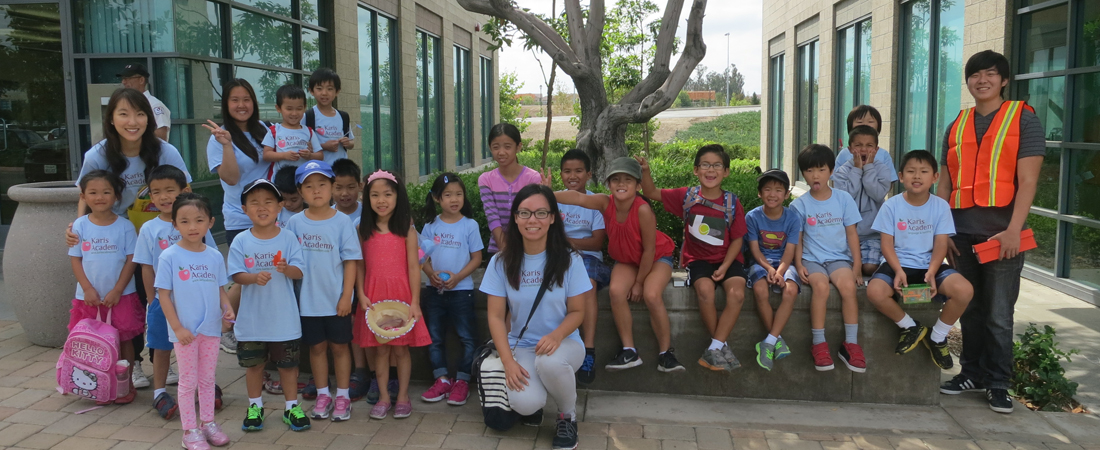
Our Mission
As teachers and parents, we at Karis Academy recognize the importance of preparing our children to become global citizens. Education in foreign languages, arts, and culture is not only essential to understanding and relating to the world around us but key to success in today’s society. Our mission is to create an environment where children can begin to build solid foundations in these areas with the help of experienced teachers who are passionate about nurturing young minds. We know how important it is to use lively and engaging strategies in our classrooms, to develop children’s intrinsic motivation and make Karis Academy a place where kids love to learn!
At Karis Academy, we believe that children LOVE to LEARN!
Our teachers have been trained in the developmental needs of children and teaching techniques that engage and motivate children in their own learning. We incorporate Total Physical Response into every lesson, giving children opportunities to move about and become involved in learning with songs, games, art projects, puppets and realia.
Our curriculum is designed around thematic units that introduce Chinese in a systematic method using real-life contexts. Each week we introduce vocabulary relevant to the theme while providing students with many opportunities to practice speaking and listening to the language. Moreover, as experienced language teachers, we understand the need to provide instruction in the functional words and phrases that are necessary to connect the vocabulary that students are learning. We want our students to be able to speak in complete sentences, not just name vocabulary words off of a list!
For students in first grade and above, we introduce the Pinyin phonetic system to help students learn new characters. Pinyin is the phonetic system used in China, as well as most U.S. high school and college Chinese courses. Students who have previously learned the Zhuyin system will be taught to easily translate the phonetic sounds between Zhuyin and Pinyin.
Our curriculum is based on the National Standards for Foreign Language Education and the California State Content Standards for World Language, tailored to the different age-groups of our students.
Why Learn a Second Language?
Research shows that language acquisition comes naturally to babies and young children, and that a critical period for acquiring language exists from the age of 0 to 7 years old.
Children who have a second language in elementary school are far more likely to become fluent than those who begin learning a second language in high school.
Moreover, research finds that children who speak a second language demonstrate increased creativity, problem solving skills, and higher standardized test scores.
Our Approach
Our teachers have been trained in the developmental needs of children and teaching techniques that engage and motivate children in their own learning. We incorporate Total Physical Response into every lesson, giving children opportunities to move about and become involved in learning with songs, games, art projects, puppets and realia.
Our curriculum is designed around thematic units that introduce Korean in a systematic method using practical, real-life contexts. Each week we introduce vocabulary relevant to the theme while providing students with many opportunities to practice speaking and listening to the language. Moreover, as experienced language teachers, we understand the need to provide instruction in the functional words and phrases that are necessary to connect the vocabulary that students are learning. We want our students to be able to speak in complete sentences, not just name vocabulary words off of a list!
Our curriculum takes into consideration the National Standards for Foreign Language Education and the California State Content Standards for World Language, tailored to the different age-groups of our students.
